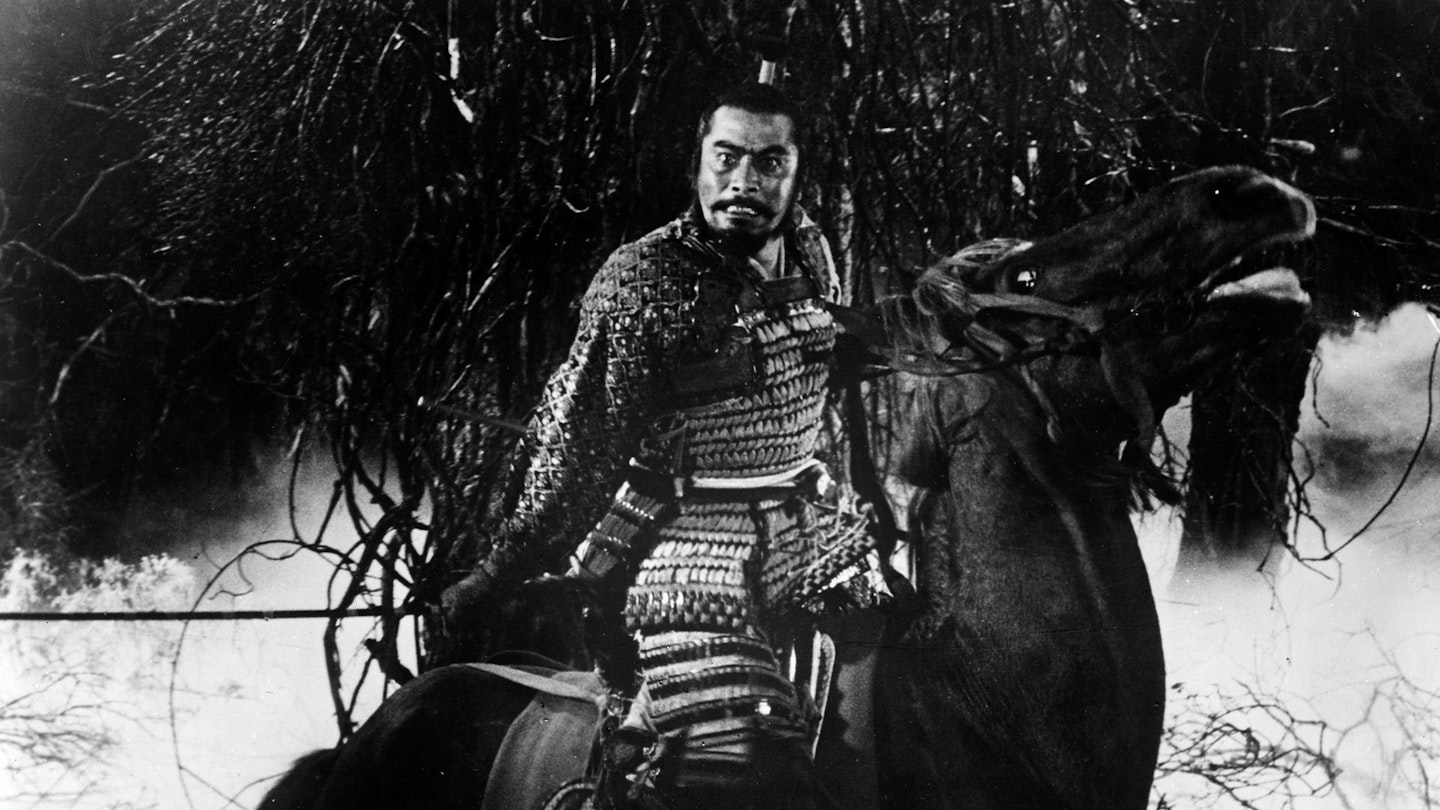The most Western of all Japanese directors, Akira Kurosawa is rightly revered as one of the masters of the artform. Whether demonstrating the duplicity of the moving image in Rashomon, or the pitiless pageantry of war in Kagemusha, he managed to remain true to his cultural identity, while achieving a universality of emotion and theme.
An exhaustive retrospective of Kurosawa’s work will play at the National Film Theatre throughout January and February, before a judicious selection tours the rest of the U.K.. Two films, however, have been singled out for extended runs — The Hidden Fortress (next month) and his 1957 reworking of Macbeth, Throne Of Blood.
In keeping with its source, this is one of Kurosawa’s bleakest films. Swept along by events he is too weak to control, General Washizu is undone less by the corrupting promise of power than by his inability to fulfil his destiny. His wife and accomplice ultimately suffers a similar fate. But at least Lady Asaji has the self-possession to pursue her ambitions.
Although this is an adaptation of Shakespeare, several of Kurosawa’s staging strategies derive from Noh theatre — among them the use of a chorus, the formalised movement of the characters, the mask-like make-up of the female figures and the precise union of story and style. Even the absence of close-ups approximates the audience’s distance from the stage.
Yet it’s also highly cinematic: shrouding shadows and translucent mists swirl round the wondrously atmospheric castle, while the wind and rain ceaselessly symbolise a world calamitously out of sorts. Moreover, it’s a film studded with magnificent set-pieces — none more memorable than the invasion of Cobweb Castle by countless birds of ill omen, the relentless march of the forest and Washizu’s hideous demise at the hands of merciless bow-men.
